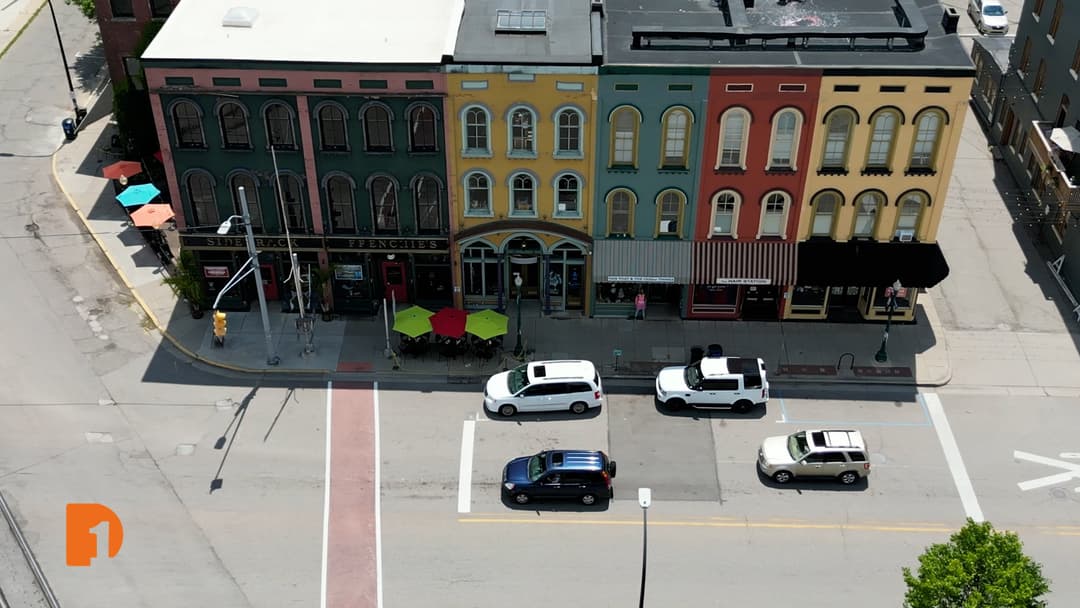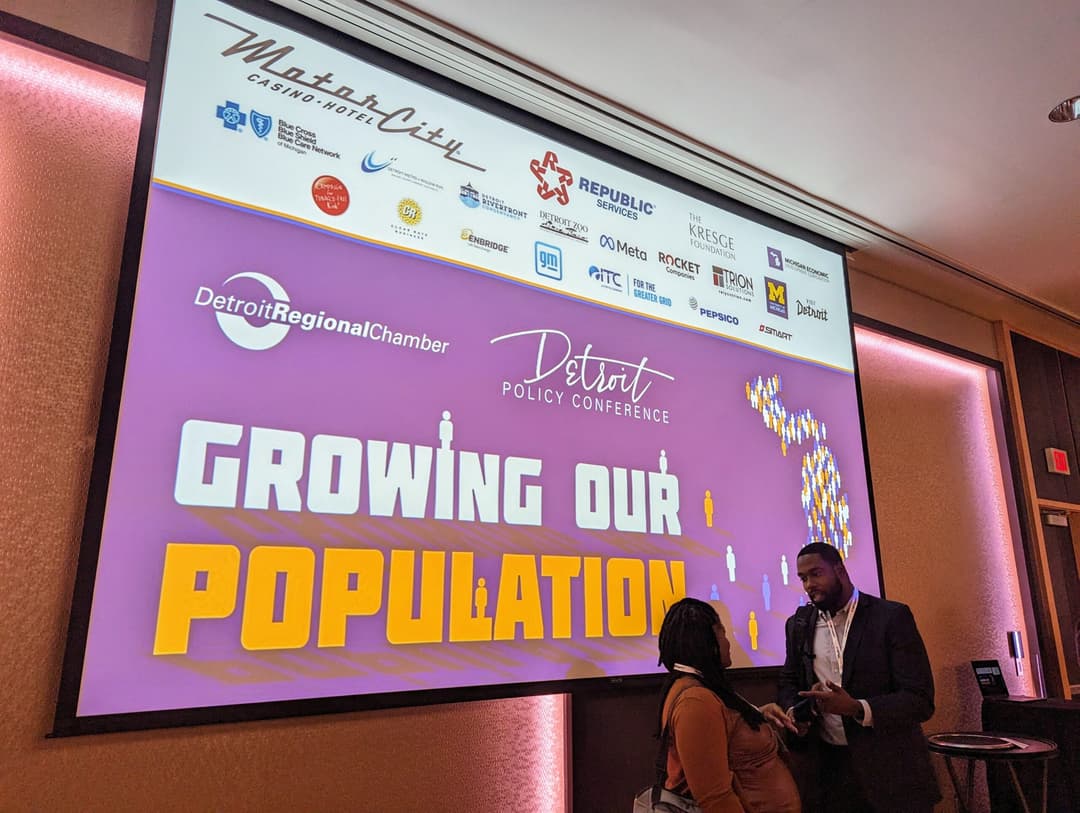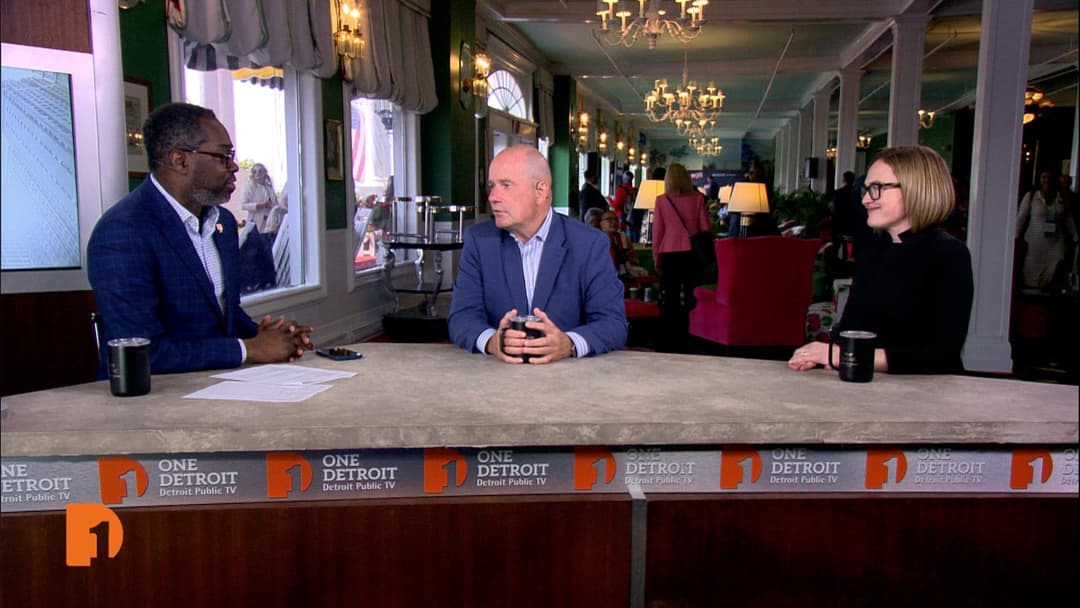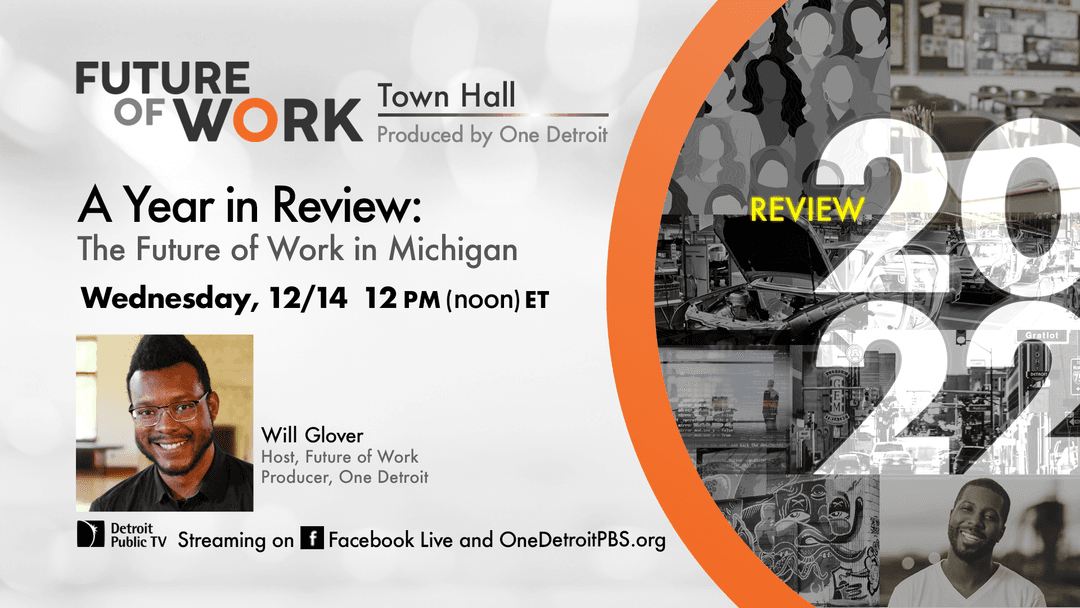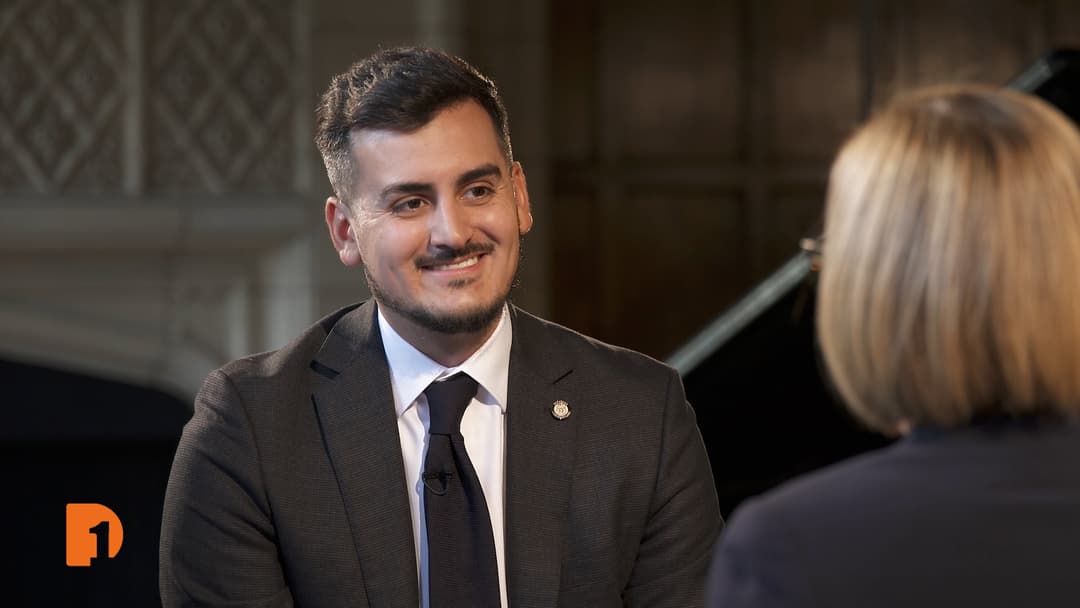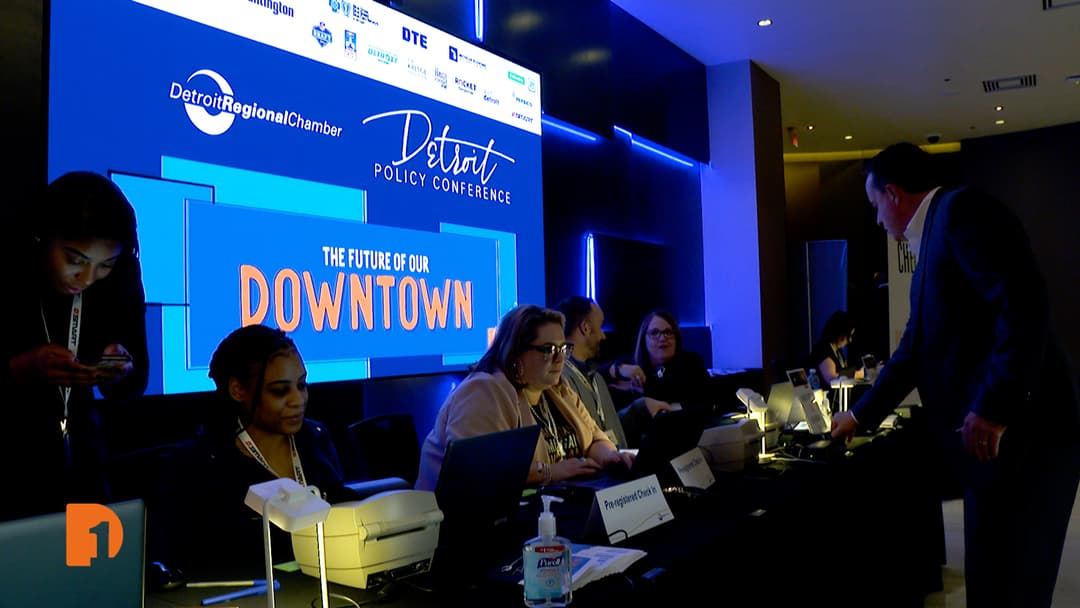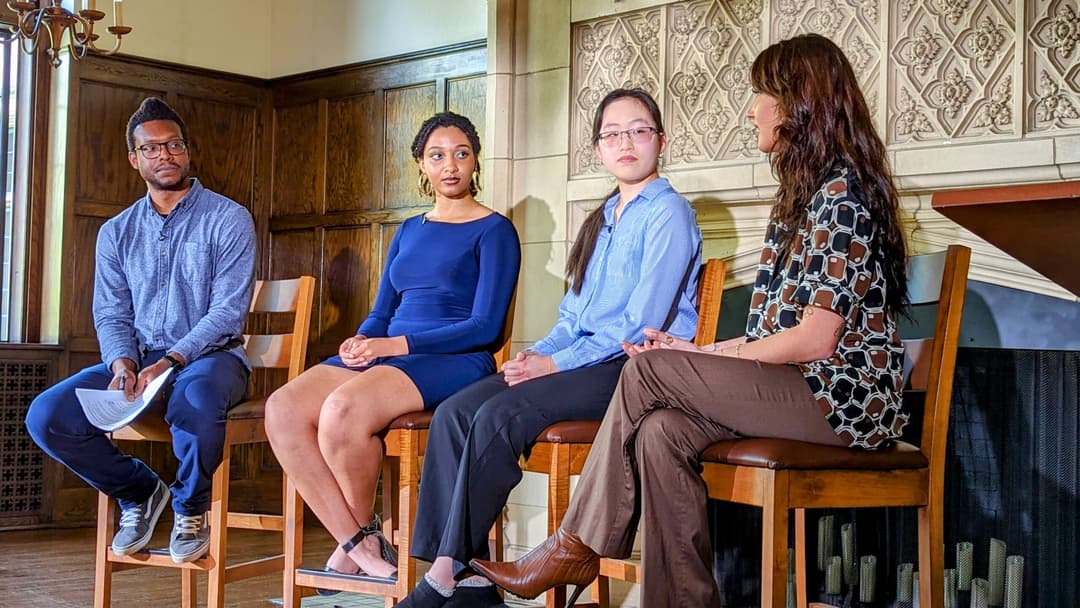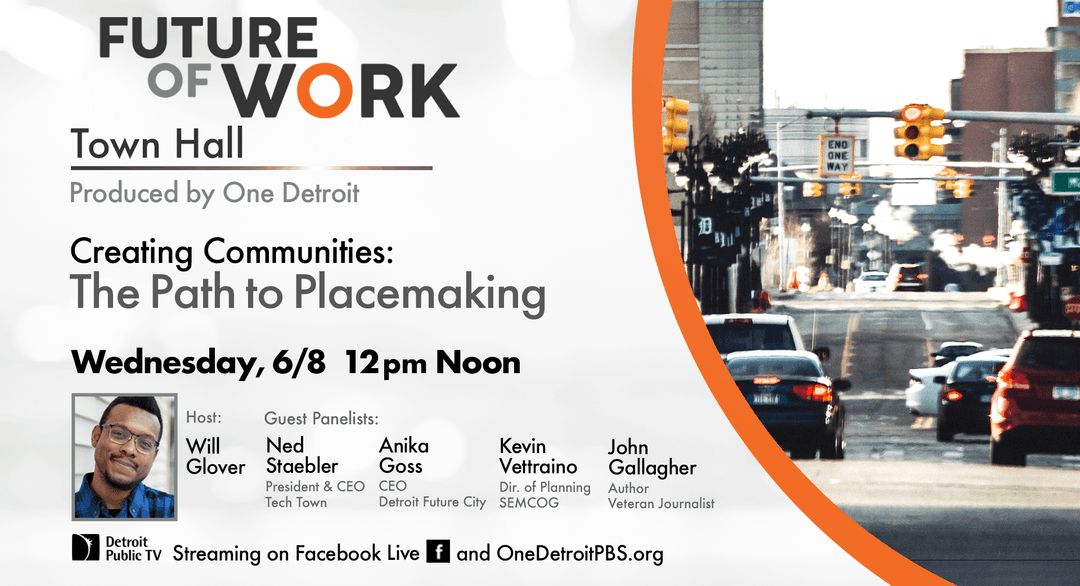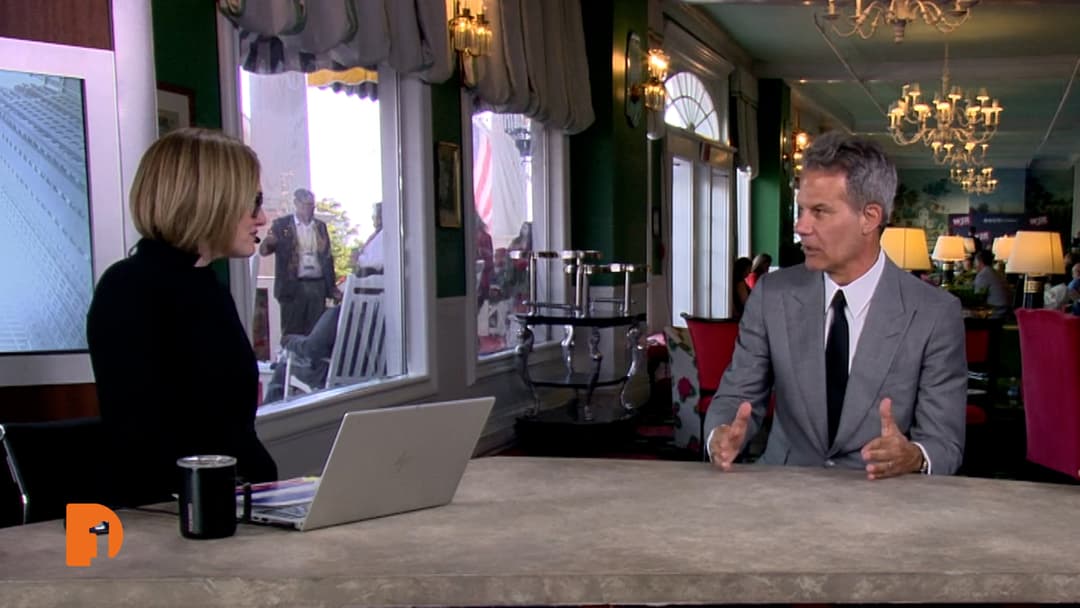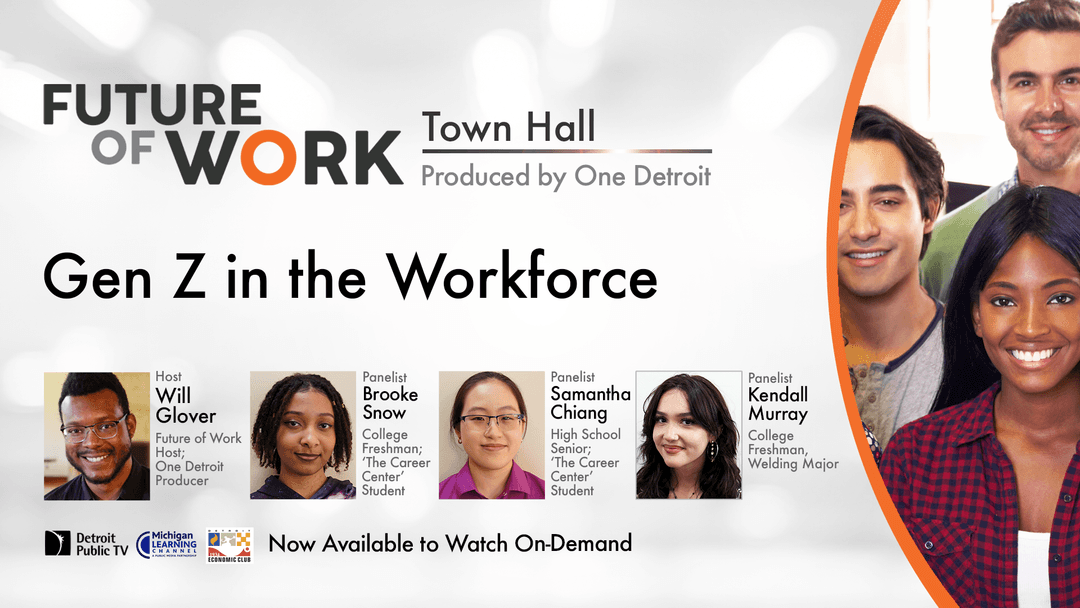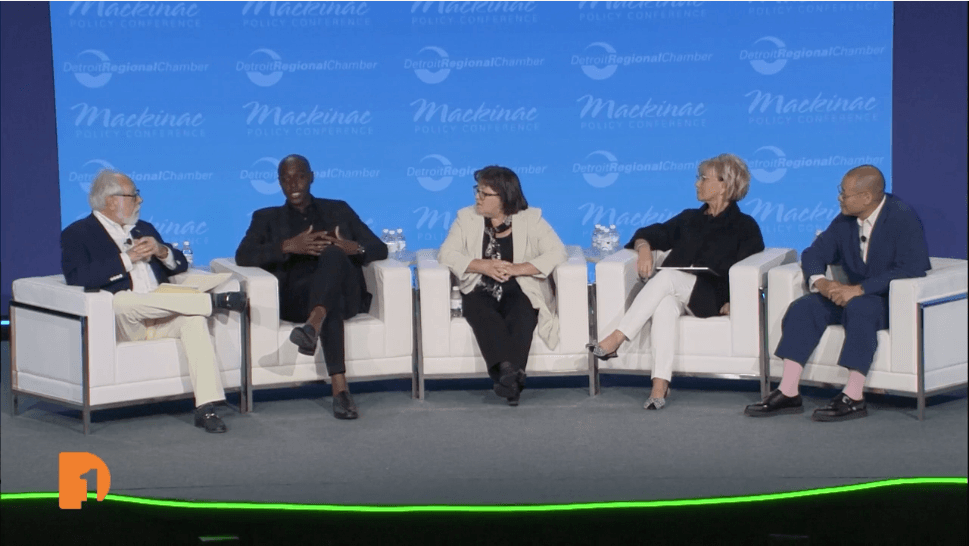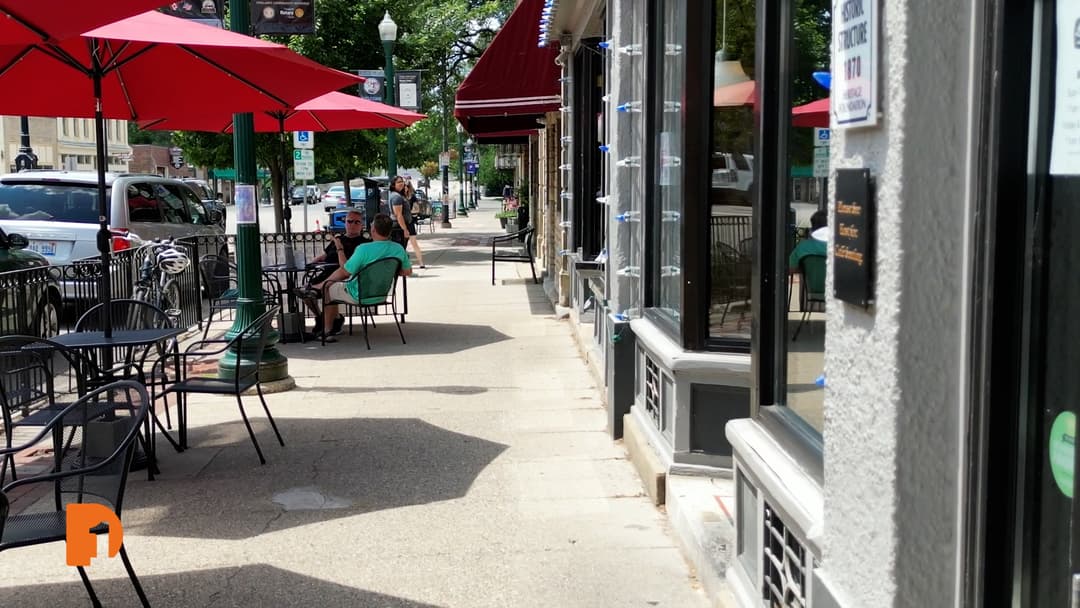Higher Education and the Battle for Gen Z Talent | One Detroit Future of Work Special Episode
Oct 20, 2023
This Week on One Detroit:
The future of work is top of mind in Michigan as policymakers, business leaders, non-profits, and academia grapple with one of our state’s chief concerns: attracting and retaining Gen Z talent. One Detroit contributors Zoe Clark, Nolan Finley and Stephen Henderson and Future of Work host Will Glover explore how Michigan stacks up against other states, as well as what the state must do to become a destination for aspiring workers. Plus, they talk with experts about how the state can provide the talent to drive the expansion of sectors like mobility, energy and healthcare.
Washtenaw Community College students share their post-graduation plans
Michigan’s struggle with a stagnant and aging population has prompted Governor Gretchen Whitmer to form the Growing Michigan Together Council, which will provide policy recommendations to Gov. Whitmer’s office to grow Michigan’s population, including identifying a population goal for 2050.
In the past decade, the state has faced difficulties in attracting and retaining younger residents who often seek greener pastures elsewhere. As this new council begins its work, the focus has shifted to higher education institutions and pathway programs with the hope these institutions can inspire college-aged students to consider staying within the state after completing their education.
One Detroit’s Will Glover visited Washtenaw Community College in Ann Arbor, where students are pursuing professional certificates and associate degrees, to talk with them about their plans post-graduation. Some students wanted to stay, seeing Michigan as their current and future home, while others are more excited by the opportunities beyond the state’s borders. The Growing Michigan Together Council faces a challenging task in reversing the trend of young Michigan residents leaving in search of career prospects elsewhere.
[et_pb_video src=”https://www.youtube.com/watch?v=AVIVVXejMJ8″ admin_label=”Segment 1 Video” _builder_version=”4.22.1″ _module_preset=”default” global_colors_info=”{}”]
Michigan’s first-ever Chief Growth Officer Hilary Doe discusses population growth
Growing Michigan’s population is a key priority for Governor Gretchen Whitmer. Earlier this year at the Detroit Regional Chamber’s Mackinac Policy Conference, the governor announced the creation of a bipartisan council to develop long-term strategies for reversing the state’s population decline. She also revealed the appointment of Michigan’s first-ever chief growth officer, Hilary Doe.
As the state’s Chief Growth Officer, Doe leads the state’s efforts to grow its population, economy, and reputation. She works alongside the state’s new Growing Michigan Together Council in its effort to grow Michigan’s population, boost economic growth, and make Michigan a place where people want to live their lives, grow their careers and raise a family.
Doe sat down with Michigan Radio’s Zoe Clark, a contributor for “One Detroit,” to discuss the challenges and plans for attracting a younger generation of talent, not just to join the workforce but to become advocates for Michigan.
[et_pb_video src=”https://www.youtube.com/watch?v=BewRaCjWLGE” admin_label=”Segment 2 Video” _builder_version=”4.22.1″ _module_preset=”default” global_colors_info=”{}”]
What role do Michigan’s higher education institutions play in the state’s prosperity?
Michigan’s higher education institutions have historically played a role in growing the state’s population and adding talent to its workforce. Community colleges, four-year universities, and certificate programs have been the conduits through which Michigan attracts ambitious students and retains them post-graduation.
However, as the state grapples with a growing talent gap, educational leaders are left to explore how Michigan’s institutions should respond to the talent gap and how higher education can remain a driving force in the state’s prosperity.
The future of work in Michigan demands fresh collaborations and strategies, bridging the gap between community colleges and universities to equip students with the skills and knowledge necessary for success in the evolving job market.
Detroit News Editorial Page Editor Nolan Finley, Wayne State University’s President Kimberly Andrews Espy, and Henry Ford College’s President Russ Kavalhuna delve into the pressing need for higher education leaders to look at the state’s challenges through a new lens and their desire to foster meaningful dialogues between community colleges and four-year universities across the state.
[et_pb_video src=”https://www.youtube.com/watch?v=Kcn-qnEyPms&feature=youtu.be” admin_label=”Segment 3 Video” _builder_version=”4.22.1″ _module_preset=”default” global_colors_info=”{}”]
Detroit Chamber and Business Leaders for Michigan co-author new study on Michiganders under 30
In an effort to gain a deeper understanding of the priorities and aspirations of Michigan’s younger generation, the Detroit Regional Chamber and Business Leaders for Michigan have unveiled the results of a recent survey focused on residents aged 18 to 29. With Michigan grappling with a declining population and businesses struggling to fill job vacancies, the survey provides valuable insights into the factors influencing young Michiganders’ decisions about their future in the state and sheds light on the perspectives of those who are poised to shape the state’s social and economic landscape.
The survey reveals that only 64% of respondents within this age group envision themselves residing in Michigan a decade from now, with college-educated individuals showing a stronger inclination to consider relocating. Among the key findings, it is apparent that the state’s infrastructure needs improvement, a sentiment shared by the majority of those surveyed. Furthermore, the availability of affordable housing emerges as a top concern when deciding whether to build a life in Michigan or seek opportunities elsewhere.
Continuing the conversation on the Future of Work and what it will take to grow Michigan’s population, One Detroit contributor and Detroit News Editorial Page Editor Nolan Finley caught up with Detroit Regional Chamber CEO Sandy Baruah to talk about the survey’s findings.
[et_pb_video src=”https://youtu.be/un_lAHoOF9k” admin_label=”Segment 4 Video” _builder_version=”4.22.1″ _module_preset=”default” global_colors_info=”{}”]
Higher ed experts on advancing college access, equity for communities of color in Michigan
A sobering reality persists for many students from communities of color trying to enter one of Michigan’s many higher education institutions. Often, they’re met with a myriad of challenges and barriers in the pursuit of college access and admission. From systemic inequities to financial constraints, these aspiring scholars often confront multifaceted hurdles that can hinder their dreams of post-secondary education.
In a high-impact panel discussion, led by “American Black Journal” host Stephen Henderson, some of the state’s top experts in higher education diversity, equity, and inclusion, including Fatima Salman, President of the National Association of Social Workers-MI, Kimberly Faison, Director of Community and Economic Development at Detroit Future City, and Onjila Odeneal, Senior Director of Policy and Advocacy at The Institute for College Access & Success (TICAS), came together to address the pressing issues present in Michigan’s higher education system.
The panelists address how Michigan can improve outcomes for young students of color and what Michigan’s institutions of higher education must do to diversify their admissions and ensure first-generation students have the support they need.
[et_pb_video src=”https://www.youtube.com/watch?v=5vWbhuqmMTA” admin_label=”Segment 5 Video” _builder_version=”4.22.1″ _module_preset=”default” global_colors_info=”{}”]
Stay Connected
Subscribe to One Detroit’s YouTube Channel & Don’t miss One Detroit Mondays and Thursdays at 7:30 p.m. on Detroit PBS, WTVS-Channel 56.
Catch the daily conversations on our website, Facebook, Twitter @DPTVOneDetroit, and Instagram @One.Detroit
View Past Episodes >
Watch One Detroit every Monday and Thursday at 7:30 p.m. ET on Detroit Public TV on Detroit Public TV, WTVS-Channel 56.
Thank You to Our Sponsors and Future of Work Partners:
Stay Connected
Subscribe to One Detroit’s YouTube Channel and don’t miss One Detroit on Thursdays at 7:30 p.m. and Sundays at 9 a.m. on Detroit PBS, WTVS-Channel 56.
Catch the daily conversations on our website, Facebook, Twitter @OneDetroit_PBS, and Instagram @One.Detroit
Related Posts
Leave a Reply
Your email address will not be published. Required fields are marked*




